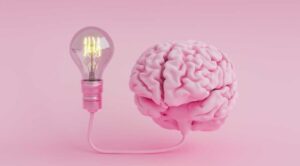This week, we will explain the importance of personalized neuromarketing and how it increases the reliability rate of the findings obtained as a result of measurement.
Traditional qualitative and quantitative research over the years, psychology-supported studies, anthropological observations and especially neuromarketing studies carried out in recent years show that ‘the communication that brands establish with their customers has an emotional dimension, and the emotional dimension creates behavioral dimension and loyalty over time’.
Neuromarketing is a research field that chooses to recognize consumers through their emotions, brain waves, heartbeats and pupils. The most striking feature of physical and neurological research, which forms the basis of neuromarketing studies, is that the emotional response of consumers to the brand’s image, products and services is personalized and determined with high reliability rates within the limits of science.
Electroencephalography (EEG) conducted with Event Related Potentials (ERP), one of the technologies widely used in neuromarketing, is the response of the central nervous system. It is a technology that measures how much electrical activity is in the brain. EEG measures the positions of brain waves in positive, negative and neutral emotion areas in response to the stimuli presented. In other words, it is measured in which emotion field a person is in in response to any stimulus presented to them. However, emotions cannot be named in this technology.
NeuroMark’s EMONET technology, on the other hand, scientifically measures consumer emotions in response to the stimuli shown and listened to in a personalized manner within 95% reliability limits. In physiological and neurological measurements, participants should not be thrown into the same pot. Because human beings are biological beings and each person’s body values differ, personalized measurement gives more accurate findings/results. Accurate findings/results, in turn, enable brands to develop more accurate strategies, segment their consumers more accurately, and thus have more new and loyal customers.
Personalized neuromarketing studies enable brands to establish personalized communication with their customers. It is clear that brands that know the reactions and emotions of their customers to the product or service they offer will have a great advantage in this regard. In a life where people lose their distinctiveness and forget who they are, it is certain that they are in great need of personalized communication.
Especially in recent years, with personalized neuromarketing measurement methods, it is possible for each customer to feel special and to create customer satisfaction by purchasing appropriate services or products.
Simin Demiriş




